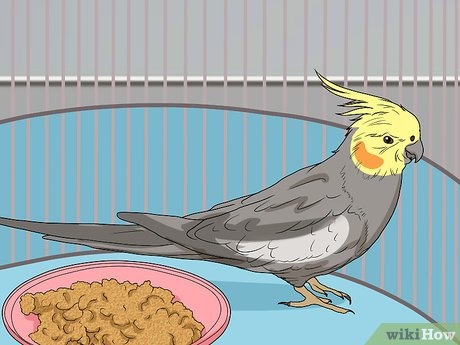Are you a proud owner of a feathered friend, specifically a delightful cockatiel? As any responsible pet owner knows, keeping a keen eye on your avian companion’s health is crucial. One aspect that often raises concern is the mysterious world of cockatiel poop. Understanding the nuances of your bird’s droppings is essential for detecting potential health issues early on. In this comprehensive guide, we, as seasoned avian enthusiasts and professionals, delve into the intricacies of deciphering your cockatiel’s poop and offer invaluable advice for maintaining your feathery friend’s well-being.
The Basics of Cockatiel Poop: A Colorful Insight
Identifying Normal vs. Abnormal Colors
When observing your cockatiel’s droppings, it’s vital to distinguish between normal and abnormal colors. Normal droppings typically display a combination of green and brown hues, indicative of a healthy and balanced diet. On the other hand, deviations such as excessive yellow, red, or black coloring may signal an underlying health concern. Our experts recommend monitoring color variations closely to detect any abnormalities promptly.
Texture Matters: What’s Normal and What’s Not
Cockatiel droppings, when healthy, exhibit a well-defined structure. Normal droppings should comprise three distinct parts: feces, urates, and urine. Any deviation from this structure may suggest digestive or metabolic issues. Our professional advice emphasizes the importance of regular monitoring to ensure your bird’s droppings maintain the correct consistency.
Cockatiel Poop and Diet: A Symbiotic Relationship
The Impact of Diet on Droppings
As responsible caretakers, understanding the correlation between your cockatiel’s diet and its droppings is pivotal. A balanced diet rich in fresh fruits, vegetables, and high-quality pellets contributes to optimal droppings. Conversely, a diet lacking in essential nutrients may manifest in irregularities in your bird’s poop. We, the avian experts, advocate for a well-rounded diet to foster your cockatiel’s overall health.
Hydration and its Role
Adequate hydration is a cornerstone of your cockatiel’s well-being, directly influencing the consistency of its droppings. Proper hydration ensures the smooth passage of waste and contributes to the maintenance of healthy fecal matter. Our experts stress the significance of providing fresh water consistently to promote optimal hydration levels in your feathered companion.
Recognizing Warning Signs: A Proactive Approach
Foul Odors and Their Significance
Unpleasant odors emanating from your cockatiel’s droppings can be indicative of an underlying issue. While a slight odor is normal, an overpowering or offensive smell may suggest a gastrointestinal problem. Our seasoned professionals advise immediate veterinary consultation if persistent foul odors are detected, ensuring swift intervention and resolution.
Consistency is Key
Consistency in your bird’s droppings is a valuable indicator of its health. Any abrupt changes in texture, color, or frequency may signal an underlying problem. Our experts stress the importance of maintaining a consistent monitoring routine, allowing for the prompt identification of deviations and timely intervention.
Conclusion
In conclusion, understanding the intricacies of your cockatiel’s poop is an indispensable aspect of responsible pet ownership. Our team of avian enthusiasts and professionals encourages a proactive approach to monitoring your feathered companion’s droppings. By adhering to the guidelines outlined in this comprehensive guide, you empower yourself to detect potential health issues early on and provide the best possible care for your beloved cockatiel.
